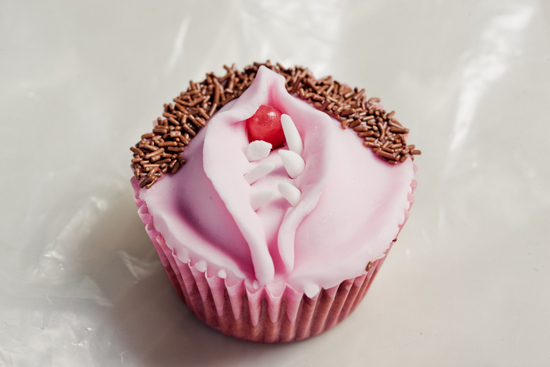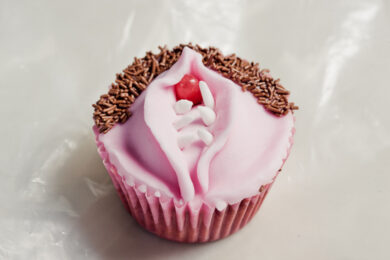As with any other ideology, the image of feminism has suffered from slander, misinformation, and some truly crooked spokespersons. But feminism is perhaps unique in just how nebulous its principles have become. Does biology have bearing on gender? What do we mean when we say ‘equality’? Is the ritual practice of female genital mutilation any of the US or Europe’s business? There is no unified feminist perspective on these issues.
Then there are the misguided think pieces, just to confuse things further. High heels and porn are the shackles of the patriarchy! As are, erm, burqas and marriage! The media has plenty of theories for why feminism is doomed, and many blame the silly bints themselves. (Few acknowledge that the prophecy might be self-fulfilling – which would be handy for those media giants who still profit from upskirt photography and cellulite-bashing. Wahey!)
All of these mixed messages mean that no one quite knows what feminism stands for anymore. Glibly: it has a branding problem.
Misbranding of feminism ranges from the inaccurate to the unrepresentative and back again. Misandry died with Valerie Solanas; the bra-burners were as mythical as Sirens. Now, from the shadows, rises the Fat, Ugly, Hairy Dyke you’ve heard so much about. She is, apparently, a combo-pack of the most terrible attributes a woman can have. She is the bogey-monster dreamed up by smooth, pretty straight girls when they utter that breathless suffix: ‘… but I’m not a feminist, or anything.’
How to make feminism appealing to these suckling lambs? Of course! A counter-campaign!
This move is not deliberate – probably not even conscious. But the pop-culture image of feminism today – as perpetuated at Ladyfests, in BUST magazine and its Craftaculars, on so-called ‘ladyblogs’ and at freshers’ fairs – is ostensibly the direct opposite of the Hairy Dyke. For simplicity’s sake, we’ll call her the cupcake feminist.
During my long-overdue feminist awakening in 2009-10, I did the rounds of what events I could find in London. Cupcakes – vegan! rainbow! wow! – clustered at every corner like barnacles. The aforementioned BUST Craftacular primarily traded in baked goods and hair accessories. Disciples of the ‘put a bird on it’ philosophy abounded. Of the disappointing number of small-press publications I could find, most were decade-old reprints and comics about boys. Everywhere I looked, everything was distinctly… twee.
Twee and retro have been seeping into feminism for a couple decades now, gaining potency. It’s all about cute dresses, felten rosettes from Etsy, knitting, kittens, vintage lamps shaped like owls, Lesley Gore. And yes – a lot of cupcakes.
It would be hypocritical to dismiss cupcake feminism outright. As outlined above, to tell women they are letting down the cause is vomitously snide and unproductive – and I like the associated aesthetic as much as anyone. (Except for knitting, which for me could only end in injury.) Admittedly, too, the cupcake feminist is a sophisticated invention. Rouged, lipsticked, cinched at the waist, she performs big-F Femininity as the drag–show that it is. Her 50s-housewife schtick sets off everything about her that is radicalised and new. And, importantly, she emphasises that typically ‘feminine’ pursuits are no less worthy or important than their ‘masculine’ counterparts.
By now, however, western women have largely reclaimed and detraumatised the concepts of marriage and homemaking. Sure, a person can still raise some hell and eyebrows with the housewife trope if, say, her grandmothers were more likely to be domestic labourers than ‘goddesses’, or she sports a poodle skirt in her wheelchair; more subversive yet if (gasp!) a man should take the role. But on a relatively privileged woman, the sugar’n’spice act counters next to no expectations. It comes off more nostalgic than ironic.
These are symbols of rebellion that have lost their meaning. They have been market-researched, mass-produced and sold back to us by Cath Kidston and Ephemera Inc. (Make sure to read Dorian Lynskey’s article on ‘Innocentese’ for a more in-depth disemboweling of cutesy marketing strategies.) It’s all well and good to Keep Calm and Carry On flogging these dead horses, but frankly, with misogyny still so rife – and we need only look to the recent UniLad debacle for proof of that – it begins to look like blissful ignorance.
Another problem with this trend towards the high-femme is that we inadvertently court the enemy. We inadvertently justify the vilification of the Hairy Dyke image, as if we were ashamed of it all along. Why are ‘fat’, ‘ugly’, ‘gay’ or ‘never-been-fucked’ still the first insults sent whistling towards the trench? What is their supposed import? To cry ‘We’re not all like that!’ only lends power. Some of us are fat/ugly/gay, some of us aren’t. So? Really, though, so what?
Mainstream society only finds cupcake feminism more palatable because it can lick off the icing and toss the rest. Just take Conservative MP Nadine Dorries, who defined ‘Tory feminism’ as follows on Twitter:
“Take feminism, remove man hating bit add high heels, style, mutual respect and a huge pinch of common sense.”
Icing. Revolting, at that. Dorries drops the f-word, but cares little for its meaning. (Speaking for abstinence education, she blathers: “If a stronger ‘just say no’ message was given to children in school, it might have an impact on sex abuse, because a lot of girls, when sex abuse takes place, don’t realize until later that was the wrong thing to do…”) Her imagined feminism plays like a hellish, unending Sex and the City montage, but with all the scandalous bits blacked out, and a MIDI instrumental of ‘I’m Every Woman’ looping ad mortem. To be acceptable to Dorries has to be the least punk thing in the world.
Even Caitlin Moran, author of the much-lauded How To Be a Woman, oversimplifies the cause in an attempt to make feminism cool again. As far as she’s concerned, a feminist is anyone who has a vagina and wants to be in charge of it. In actuality, this is just the kind of exclusion we should be worried about. Applicants must have a vagina? That rules out many trans women, then. Even to cis women, all this adoring quim-imagery stands to feel off-puttingly cold and anatomical. Cupcake feminists, too, incorporate the hallowed sex organ into their worship: lovingly screen-printing its ram-skull form onto knickers and shirts, carving vulvas into diverse confections. Vulva cupcakes, by heck – good for a laugh, I suppose, but you can’t get much more reductive of a gender than that.
Feminism can and should be fun and frivolous sometimes – otherwise the struggle can be exhausting. But let’s bring our riot grrrls back, too. Let’s bring our battle scars and our Xerox-stained fingers and our humourless academics into the picture. We’re too big to be branded. No slogans, no gimmicks: just compassion, respect, and freedom of choice for all women. The product should sell itself.



